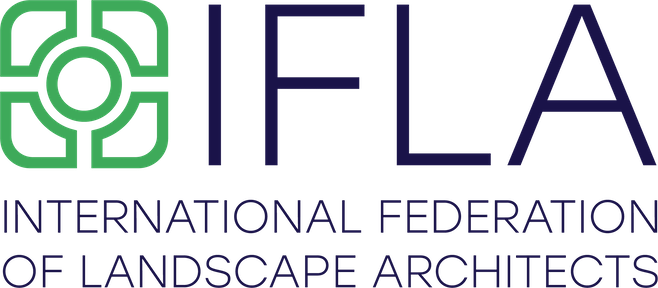President's Message: January 2023
Monica Kuo
Dear readers, first of all, Happy New Year! The year of "Rabbit" should be a year full of vitality. This is the first edition in 2023, I hope you all brace for a brighter and successful year.
In 2022, most regions in the world have weathered Covid-19, yet we are still bearing the heavy responsibility of net zero carbon emission in 2050, and the pressure of energy policy adjustment and carbon reduction in various countries triggered by the war between Russia and Ukraine. However, these pressures have also led to the need for innovation and self-adjustment in the professional sectors.
I am glad that the PPP Committee of IFLA has published "A Landscape Architecture Guide to the United Nations 17 Sustainable Development Goals", which will be of great benefit and guidance to the practice of the landscape profession. It is hoped that APR members will practice the guidelines according to their different geographical, climatic, and ecological and cultural characteristics.
Recently, we have seen how different countries in the Asia Pacific region, both public and private sectors, especially the industrial sector, have started to apply their traditional wisdom to their lifestyles. For example, a lot of members in APR are surrounded by or close to ocean, and in terms of global carbon reduction and carbon sink benchmarks, we should be more effective in the continuation of coastal planning and design of wetland conservation and restoration, and the development of new tasks of "blue carbon development" for new landscape professionals through appropriate coastal and marine ecosystem conservation and the creation of different types of wetland conservation (e.g. artificial wetlands).
Even in low-lying countries, the development of various types of wetlands, paddy fields, low-lying lands and aquaculture parks can add value to the blue carbon economy. Although "green carbon" must be based on planted forests, it is the expertise of our landscape architects to plant trees and add the value of biodiversity and cultural diversity to them.
In other words, in this period of intense global climate change, we should especially make full use of the innovative and diverse practices and leadership in this critical era through cross-border collaboration. I’ve mentioned nature-based solution based on "scientific knowledge" in our existing positions several times in previous editions. Please bear with me for highlighting it over and over again for is significant importance. At the same time, we hope that APR members will also strengthen their own programs and Education Route Map for landscape professional education to reduce the impact of climate change.
We believe that the collaboration of industry, government, academia, and the public will enable us to do our part to help the planet. We wish you all the best and encourage you to join us.
Regards, 

